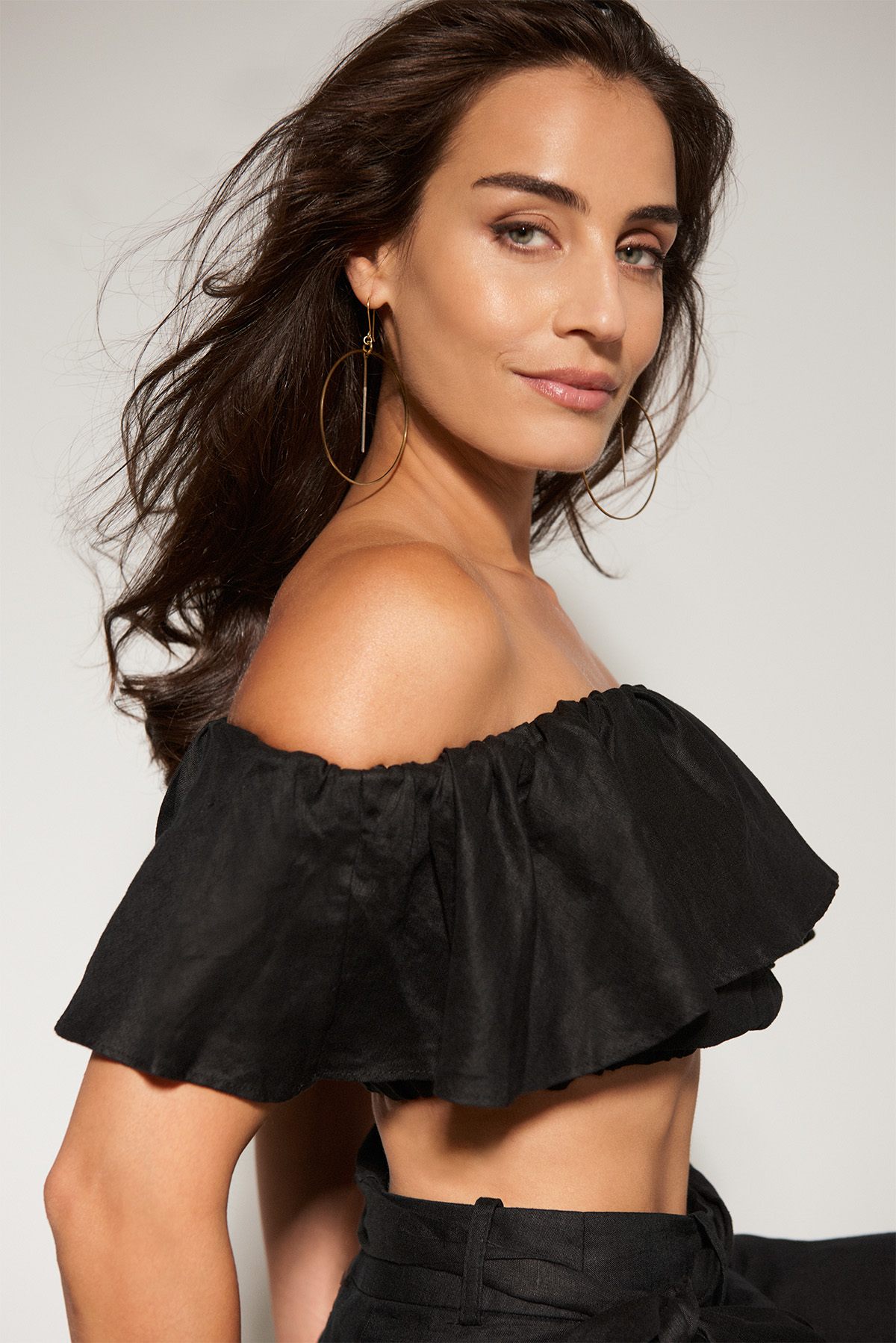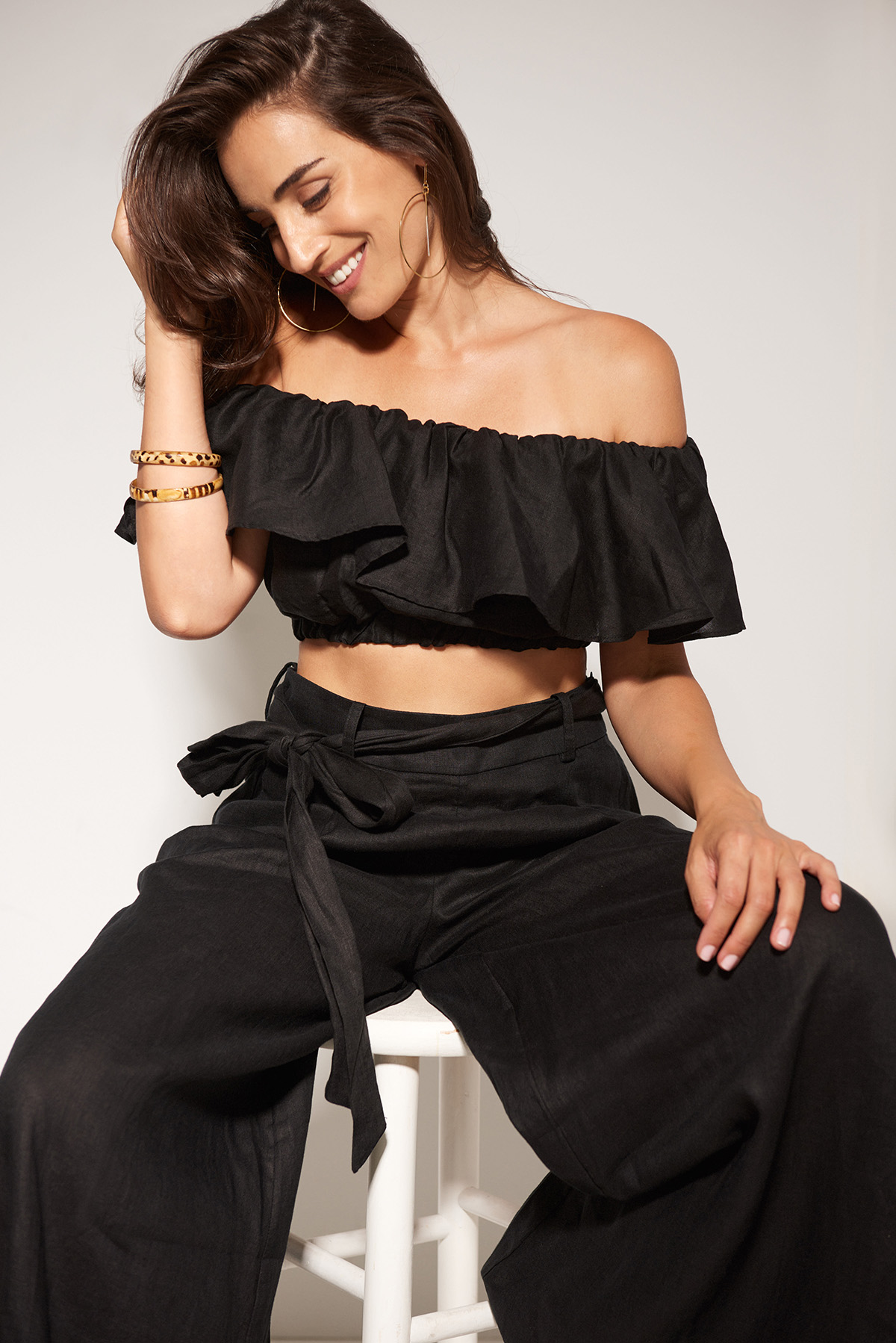
In this exclusive interview for The Untitled Magazine, we caught up with the talented actress and writer Lara Wolf. Lara has captivated audiences in an array of roles across television and film. With her latest major role as Queen Berenice in the Peacock Original series “Those About to Die,” directed by Roland Emmerich and premiering on July 18th, Lara continues to push the boundaries of her craft.
“Those About to Die” is an epic “sword-and-scandal” series that delves into the dark side of the ancient Roman Gladiator Games, drawing compelling parallels between ancient entertainment and modern-day spectacles. Lara’s portrayal of Queen Berenice, the Judean Queen romantically linked to Titus Flavianus, showcases her ability to bring depth and nuance to her characters. This series also stars the legendary Anthony Hopkins, adding another layer of gravitas to this ambitious production.
Lara’s journey is as fascinating as her roles. Born in Tehran, raised in Zurich, and now a naturalized New Yorker, her international background has significantly influenced her approach to acting. A polyglot, Lara speaks multiple languages, including English, Farsi, Swiss German, German, and some French and Italian. Her diverse experiences and classical training at the Lee Strasberg Theatre and Film Institute have equipped her with a unique perspective that enriches her performances.
Beyond her role in “Those About to Die,” Lara has been featured in popular TV series such as ABC’s “Quantico,” Amazon’s “You Are Wanted,” and “Blue Bloods,” as well as films including “The Performance,” “Hot Air,” and “These 3 Waters,” the latter of which she also wrote.
In this interview, Lara opens up about her career, the challenges she has faced, and her upcoming projects. She also shares insights into her creative process, the impact of her international upbringing, and her passion for physical and mental wellness. Read on for the full interview with Lara Wolf below.
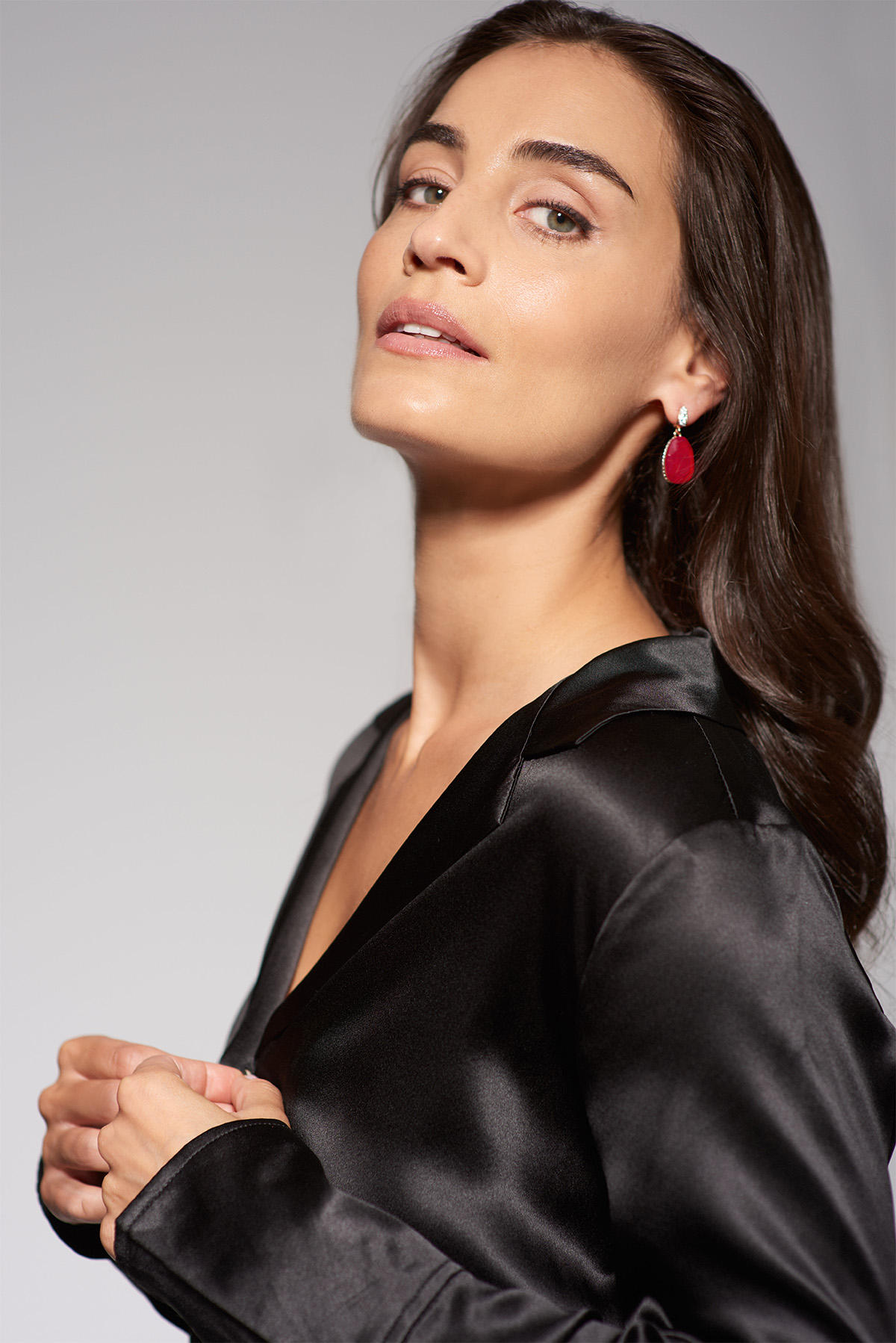
How has your international upbringing influenced your acting career?
If I were to sum it up briefly, I would say Tehran is the heart, Zurich is the brain, and NYC is the gut. Being born in Tehran, along with countless visits over the years while living in a small town in Zurich, provided a constant opportunity to compare the two societies. From a young age, I wondered about their stark differences, which was always intriguing to me. It also made me realize how fortunate I was to be raised in a society with a good government in place. As a teenager facing my own challenges, which eventually led me to pursue acting, I often felt a sense of guilt, knowing that my problems seemed trivial compared to those faced by girls growing up in Iran or other. Ultimately, my desire was to channel the wounds I carried into an art form and tell others’ stories. Since Switzerland, especially at that time, didn’t offer much of an industry for actors, I knew I needed to go where I could learn, find opportunities, and surround myself with other artists. NYC has been that place for me, and it still is.
Can you tell us more about your character, Queen Berenice, in “Those About to Die” and what drew you to this role?
Berenice, or the Queen of Judea, is a historical figure known for her strategic alliances and marriages, as well as her charm, political acumen, intelligence, and grace. Her most notable relationship was with Titus, the son of the Roman Emperor, portrayed by Tom Hughes, during a time when the Romans enslaved the Judeans. Berenice’s actions were controversial to some and admired by others, which really fascinated me. From the moment I received the audition, I felt a deep connection to this role, was intrigued by how it was written, and was very attracted to the genre.
What was it like working with Anthony Hopkins and director Roland Emmerich on such an epic production?
Sometimes, I look back and think it must have been an incredible dream. Anthony Hopkins is one of my all-time favorite actors, and it was an honor to be in the same show. He elevates any project he touches, and his portrayal of the Roman Emperor Flavius Vespasian was unforgettable. Roland Emmerich is a true master of his craft and a visionary. I was amazed at how hands-on he was, ensuring we didn’t waste time and always got the shots he needed. His ability to manage a large-scale production with multiple storylines, characters, animals, and CGI for nearly a year was truly impressive. I have immense respect for him. Personally, I enjoyed his approach because he allowed actors to explore their roles freely and intervened only when necessary.
How did you prepare for your role in a series exploring the dark side of ancient Roman Gladiator Games?
Lots of reading! I also consulted a historian and delved into archives. However, I avoided watching other portrayals to allow my imagination to shape the character. Ultimately, there is only so much you can do to portray an ancient historical figure, as there is no video footage of any kind. It was a great honor to be given this opportunity based on my interpretation of Queen Berenice.
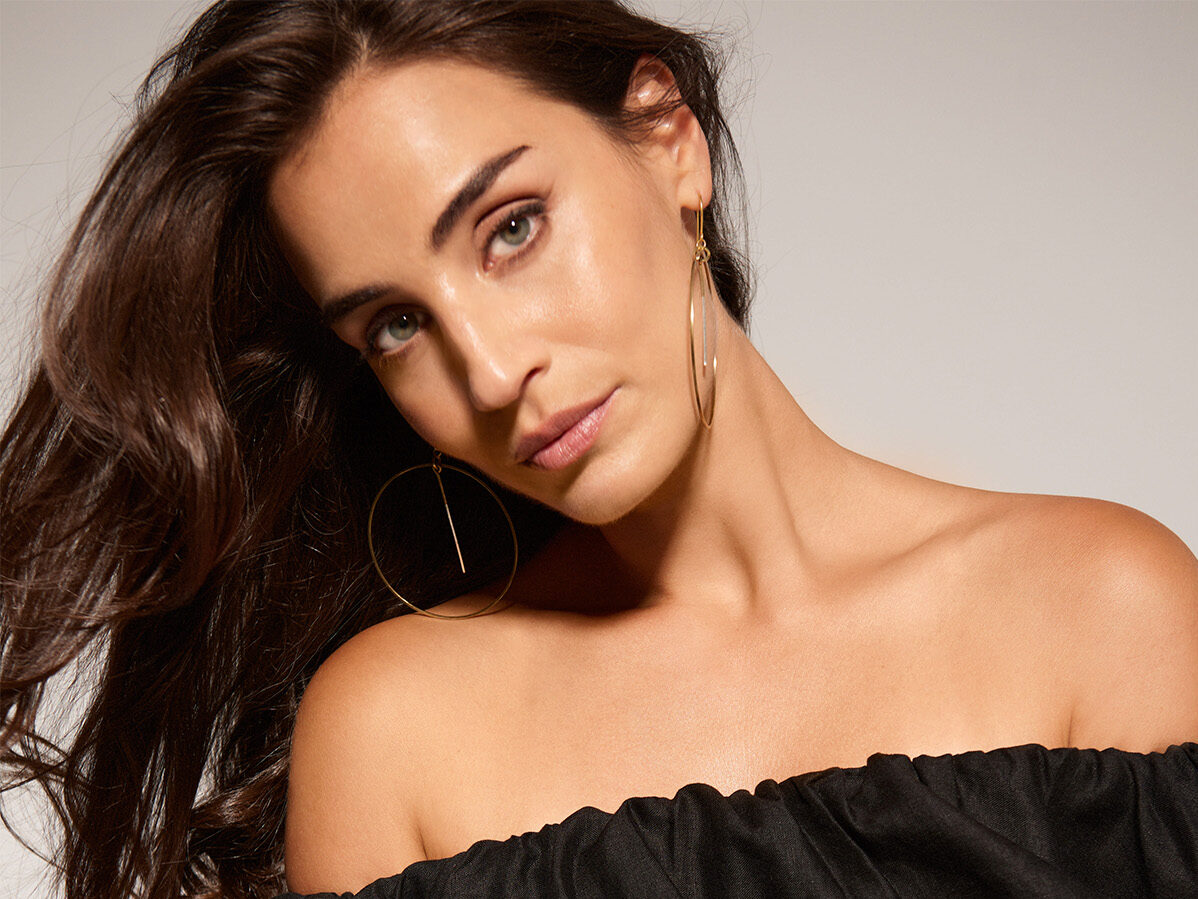
What are some of the biggest challenges you’ve faced in your career, and how have you overcome them?
Occasionally, fear and doubt creep in and threaten to derail you. It’s almost inevitable in this profession, and giving in to them is the easier path, though it leads to misery. I’ve found it crucial to learn techniques to manage such stress. Grounding myself is a constant practice—recognizing unhelpful thoughts, taking baby steps forward, and knowing where I’m headed!
What draws you to particular characters or projects?
Ultimately, I think my roles are just now growing and becoming more complex. There are certain roles that are more in my wheelhouse than others, closer to who I am. And I’m not royalty, haha. But I’m referring to the personality and struggles beneath the regal title. At the end of the day, I want to play characters that are challenging emotionally, physically, and linguistically and come with deep levels of complexity. I studied psychology, and I love it when I have to figure out someone’s actions and thought processes. It excites me! More so than in real life, actually.
How does your approach to acting differ when you’re also the writer, as in “These 3 Waters”?
If it is something I wrote and acted in, it feels that each word comes with meaning and imagery. It’s like a little package deal you get for the effort of writing it yourself – haha. When you prepare for a role someone else wrote, however, you have to do the work, and find the context, the feelings, the actions, it’s like a puzzle you need to piece together. When you write it yourself, you receive the whole idea and innately know how the pieces connect. There is an immediate connection, a perfect overlap of saying a word and feeling it because when you wrote it, you either really experienced it or imagined the context in such minute detail that the words would naturally follow. I hope I’m making sense!
Can you discuss the impact of Primitive Grace Theatre Company on your creative journey?
Primitive Grace Theatre Company, founded by Paul Calderon and David Zayas, has been instrumental in my growth as an actress and a writer. Thanks to its small size, the company fosters emotional safety while encouraging raw, provocative performances. Paul Calderon’s writing challenges actors with its intricate language and rhythm, bringing out some of our best work. It was through them that I gained the courage to start writing, and having fellow actors read my work has sharpened my understanding of what works onstage. Ultimately, our goal is to produce our own work, which keeps me artistically fulfilled.
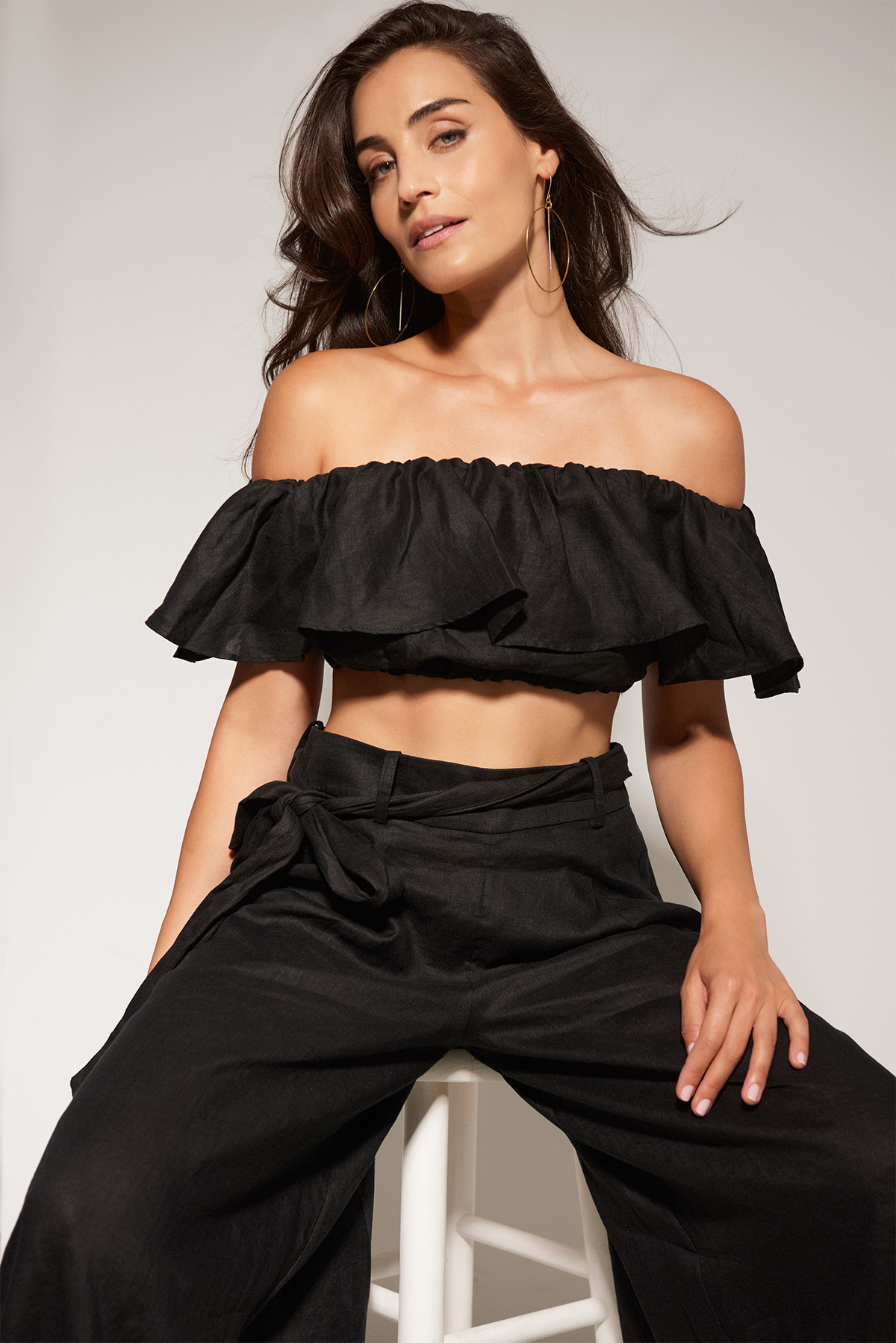
How did your role as Princess Nora in “Quantico” impact your career trajectory?
The writers told me on my first day on set that the moment they saw my tape, they knew I was the right person to play Princess Nora. I connected with that part because I understood the injustice Nora was experiencing because she was a woman. I didn’t really pay much attention to the royalty aspect because the feeling of being treated unjustly is the same regardless of your title. This part allowed me to get more exposure and audition opportunities and ultimately gave me a feeling that this career is possible as a foreigner in the US. Now, playing Queen Berenice in Those About To Die seems like a fun and natural development.
What was it like acting in “The Performance” opposite Jeremy Piven and Robert Carlyle, and how did it challenge you?
“The Performance” was such a special experience for me. I was at a point where I thought I needed to switch careers. Then suddenly, out of the blue, I received a call that I needed to fly to Bratislava for a film I had auditioned for 4 months earlier. The next day. It was quite the adrenaline boost, and we ended up shooting this film during a complete lockdown and were tested daily. All the actors, Shira Piven, the director, Josh Salzberg, the writer, the producers, and the crew made it an incredibly fun and profound experience. And the singing part was a dream come true! Singing live, from a French version of The Andrew Sisters’ ‘Bei Mir Bist Du Schein’ to a heavy German Soldier Song from WW1, was a dream come true. Luckily, I speak German, and some French, and preparing the songs didn’t require learning a language. This role was pretty much tailored to my singing and linguistic abilities. Singing live at the Slovak National Theatre with an audience was a transcendental experience.
How do you balance your demanding career with maintaining physical and mental wellness?
I prioritize listening to my body—recognizing what gives me energy and what drains it. Consistent sleep and a morning workout routine are essential. After a day on set, I find solace in long walks or runs to release pent-up energy and ground myself. Movement has always been my reset button, helping me maintain mental resilience against negative thoughts.
What can you tell us about your upcoming projects, and are there any roles or genres you’re excited to explore?
“Reading Lolita in Tehran,” directed by the wonderful Eran Riklis and based on Professor Azar Nafisi’s bestseller, will soon hit the festival circuit. This female-strong ensemble piece holds personal significance for me, set against the backdrop of Tehran after the 1979 revolution. I play Azin, an eccentric and misunderstood two-time divorcée and mother who looks for understanding and freedom in Western Literature.
There is another project on the horizon, but unfortunately, I can’t tell you about it just yet! But it’s action-packed!
What advice do you have for aspiring actors and writers looking to make their mark in the industry?
Knowing that so much in our world is a numbers game and more so than in other industries based on luck, this simple quote by Seneca has always been helpful to me: Luck is what happens when opportunity means preparation.
For more from Lara follow on socials @laradwolf
